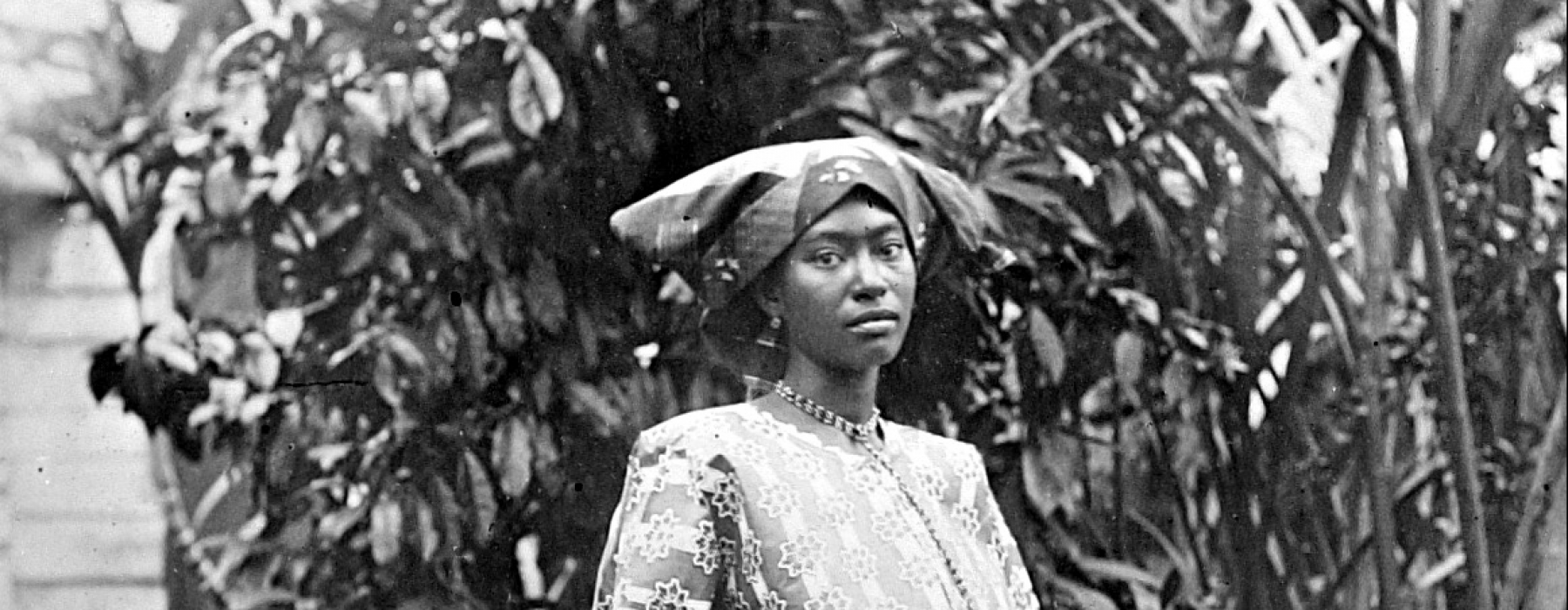
This year’s collaboration will focus on the koto. The koto is a costume, a style of dress associated with Afro-Surinamese women, which emerged during the Dutch colonial period in Suriname. Today it is a visible part of the public sphere in both Suriname and the Netherlands, present for instance at the annual July 1 commemoration of the abolition of Dutch slavery in Amsterdam’s Oosterpark. Women of Afro-Surinamese descent elegantly adorn themselves in garments that carry messages and commemorate ancestors, while visualising their heritage.
Within the collections of the National Museum of World Cultures, 515 objects represent the figure of the kotomisi, a woman wearing a koto. This collection dates back to the 19th century and was collected as part of the study of Afro-Surinamese traditions. What meanings do these objects have today? Beyond the work that they do in the museum, how might they help us to better understand how the kotomisi functions in contemporary commemorative practices within the Netherlands? How might the object help us trace a genealogy of skill and knowledge and politics, both of enslaved women and their descendants? What might they tell us about gendered practices of refusal in the face of colonial violence? And what role did dress play in their claims to identities circumscribed under colonial power?
In this first meeting of a year-long series we want to invite different perspectives on the koto, we want to hear your voices. Join our roundtable session, and bring others with you, who might have different stories to tell.